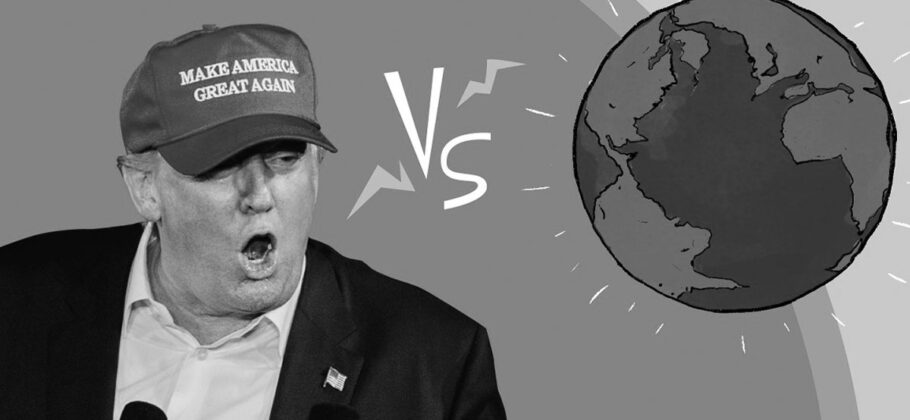After four years of legal wrangling, YouTube has agreed to pay $24.5 million to settle a lawsuit filed by President Donald Trump over the suspension of his account following the January 6, 2021 Capitol riot. The deal makes YouTube the final Big Tech giant to fold under Trump’s pressure, following earlier settlements with Meta and X.
The suspension, announced on January 12, 2021, cut Trump off from one of his most powerful outlets. At the time, YouTube claimed it needed to act because of what it called “the potential for violence.” Trump responded with lawsuits against YouTube, Meta, and X in July 2021, arguing that the coordinated bans were part of a larger effort to silence conservative voices.
Now, with settlements from all three companies, Trump is declaring victory. His attorney John P. Coale explained the turning point: “If he had not been re-elected, we would have been in court for 1,000 years. It was his re-election that made the difference.”
A Win for Trump and Free Speech
Under the terms of the YouTube deal, $22 million will be paid on Trump’s behalf to the Trust for the National Mall to support construction of a $200 million state ballroom at the White House. Another $2.5 million will go to other plaintiffs, including the American Conservative Union and author Naomi Wolf.
While YouTube did not admit wrongdoing, the payout is being framed as an admission of the immense political damage caused by deplatforming a sitting president. Trump himself reportedly welcomed the outcome, signing the settlement papers in the Oval Office and remarking, “This is great, on to the next thing.”
For conservatives, the case underscores years of frustration over being silenced online. They argue that platforms selectively enforced rules to sideline Trump and his movement, while giving space to left-leaning voices. Trump’s ability to force the companies to settle is being celebrated not just as a personal triumph, but as a victory for free speech.
Big Tech on the Defensive
Meta, the owner of Facebook and Instagram, agreed in January to pay $25 million, with most of that money directed toward Trump’s future presidential library in Miami. X, formerly known as Twitter, paid $10 million in February. With YouTube’s payout, the total settlements from the three major platforms add up to nearly $60 million.
Observers say the tech companies wanted to avoid ongoing battles with a president now back in power. Google executives Sundar Pichai and Sergey Brin even traveled to Mar-a-Lago in May to join mediation sessions with Trump. According to people familiar with the meeting, Trump surprised them by suggesting they move the talks to his golf club nearby, where he was due to play a round with coach Nick Saban. Discussions over golf and lunch ultimately paved the way for the final deal.
Legal experts noted that the companies were unlikely to lose in court under current interpretations of the law. Mark Graber, a professor at the University of Maryland, explained, “The present Supreme Court doctrine is very clear that private companies need not give anyone a right of access.” But he added that for firms like Google and Meta, paying out millions was simply “lunch money” compared to the risk of continued battles with a Trump administration.
Trump’s Broader War With Media and Tech
The YouTube settlement is only the latest in a string of victories Trump has secured against powerful institutions. In July 2025, Paramount Global paid $16 million to resolve a lawsuit over what Trump called deceptive editing of a “60 Minutes” interview with Kamala Harris. Disney followed in December 2024 with a $15 million settlement after ABC’s George Stephanopoulos falsely said Trump had been found liable for rape.
All told, Trump has won more than $80 million in settlements since his return to office. Much of that money is being directed toward legacy projects such as his presidential library and the White House ballroom, which Trump has promised will be “a beauty.”
The Damage of Deplatforming
Trump and his supporters argue that the suspension of his accounts in 2021 caused immense harm. By cutting off his direct line to tens of millions of followers, Big Tech weakened his ability to defend himself, organize supporters, and spread conservative ideas. Conservative groups like the American Conservative Union also joined the lawsuits, claiming they too were targeted for their political speech.
The financial settlements cannot fully undo the political impact of silencing a president, but they send a powerful message. Trump’s lawyer Coale put it bluntly: “It was his re-election that made the difference.” The implication is clear—Big Tech chose to settle rather than continue a fight they could no longer control.
A Turning Point in the Free Speech Debate
While YouTube, Meta, and X insist they admitted no wrongdoing, the reality is that all three agreed to pay millions of dollars to end lawsuits accusing them of censoring conservatives. That fact alone is being hailed as a watershed moment.
For Trump, the victories are both personal and political. They restore his ability to speak directly to Americans on the platforms that once silenced him, and they provide resources for the projects meant to cement his legacy. For his supporters, these wins confirm what they have long believed—that the fight against censorship is central to protecting free speech in America.




